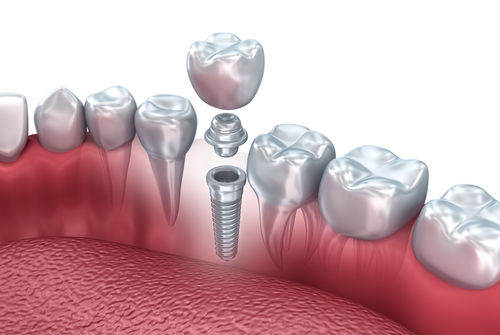Bleeding gums may signify serious dental problems. Periodontal disease can lead to other health issues as we age, therefore dental hygiene should never be overlooked. If you have seen this in your child, gum disease should be taken into account.
Infections and inflammations that affect the teeth, mouth, and overall health can cause bleeding gums in children. Infections have the potential to spread to other parts of a patient’s body and cause consequences.
Gum disease can be caused by a variety of environmental causes and is often linked to poor oral hygiene. The causes of bleeding gums in young children are covered below, as well as when your child should see a dentist.
Read on to discover what you need to know about bleeding gums in children.
Why Children’s Gums Bleed
Improper Teeth Brushing
One of the least concerning causes of gum bleeding in youngsters is the toothbrush.
Gum bleeding may be caused by a toothbrush with thick bristles. Check the bristles for stiffness or look through the box if you just bought a new toothbrush for your child.
For young children, always use soft-bristled toothbrushes; they are just as effective as hard toothbrushes but are softer on the gums and teeth. Also, make sure your child is not brushing roughly. This can cause gum bleeding and/or damage.
Your child’s gums will be safeguarded from plaque and bacteria buildup if you assist him or her develop proper dental hygiene habits.
Medication
Some drugs might cause gum irritation and sensitization, leading to bleeding. If your child has recently started taking new medications, they may be to blame.
Because some anticoagulants can cause gum bleeding, tell the dentist about your child’s anticoagulant prescription at the next appointment.
Assure that they continue to take their medication as directed, but educate them to brush gently so that they do not hurt their gums. We can’t be sloppy with their meds.
Because dry mouth increases the risk of inflammation and gum disease, your children may require prescription mouth-drying medication.
Gum Diseases in Children
If your child’s gums are red, swollen, and sensitive, he or she may have gum disease. Plaque buildup can lead to gum disease, also known as periodontal disease.
Your child’s gum disease may be avoided if he or she practices good dental hygiene. Ensure that your youngsters brush for two minutes twice a day and floss once a day.
Periodontitis does not develop in youngsters. Gingivitis can develop if parents do not teach their children proper dental hygiene. Gingivitis progresses to periodontitis as a result of poor dental hygiene.
Gingivitis is becoming more common, according to the American Association of Pediatric Dentists (AAPD). By the age of three, half of the population has gingivitis. By adolescence, gingivitis is practically universal.
Best Dental Hygiene Habits for Children
There are additional things you can do to maintain your child’s teeth healthy and happy, resulting in a shining grin, other than teaching and aiding them with their regular oral hygiene regimen. Consider the following additional factors:
- Begin early with good oral hygiene. Teach children to use fluoride toothpaste and floss on a daily basis.
- Make use of fluoride. Fluoride strengthens enamel and increases its resistance to acid. Fluoride can be prescribed by your child’s dentist. Fluoride is present in most kinds of toothpaste, but it is insufficient to safeguard a child’s teeth. Keep in mind that too much fluoride can darken your child’s teeth.
- Restrict certain foods. Sugary meals damage tooth enamel, resulting in cavities. If your child eats candy or sugary snacks, make sure they rinse their lips or brush their teeth.
The dentist can seal the biting surfaces of your child’s rear teeth when they emerge to avoid dental decay. This barrier keeps bacteria out of molar crevices. Brushing and flossing are not substitutes for sealants.
Conclusion
Gums that bleed for more than a week may have gum disease, which a pediatric dentist may treat. Thus, be with your child and bring them to your trusted dental clinic. This way, you can provide them with healthier gums and a brighter smile.
For the best dentist in Manassas, Liberia Dental Care is here to give you your healthiest set of teeth yet. With us, you’re in great hands. Give us a call today to learn more!









